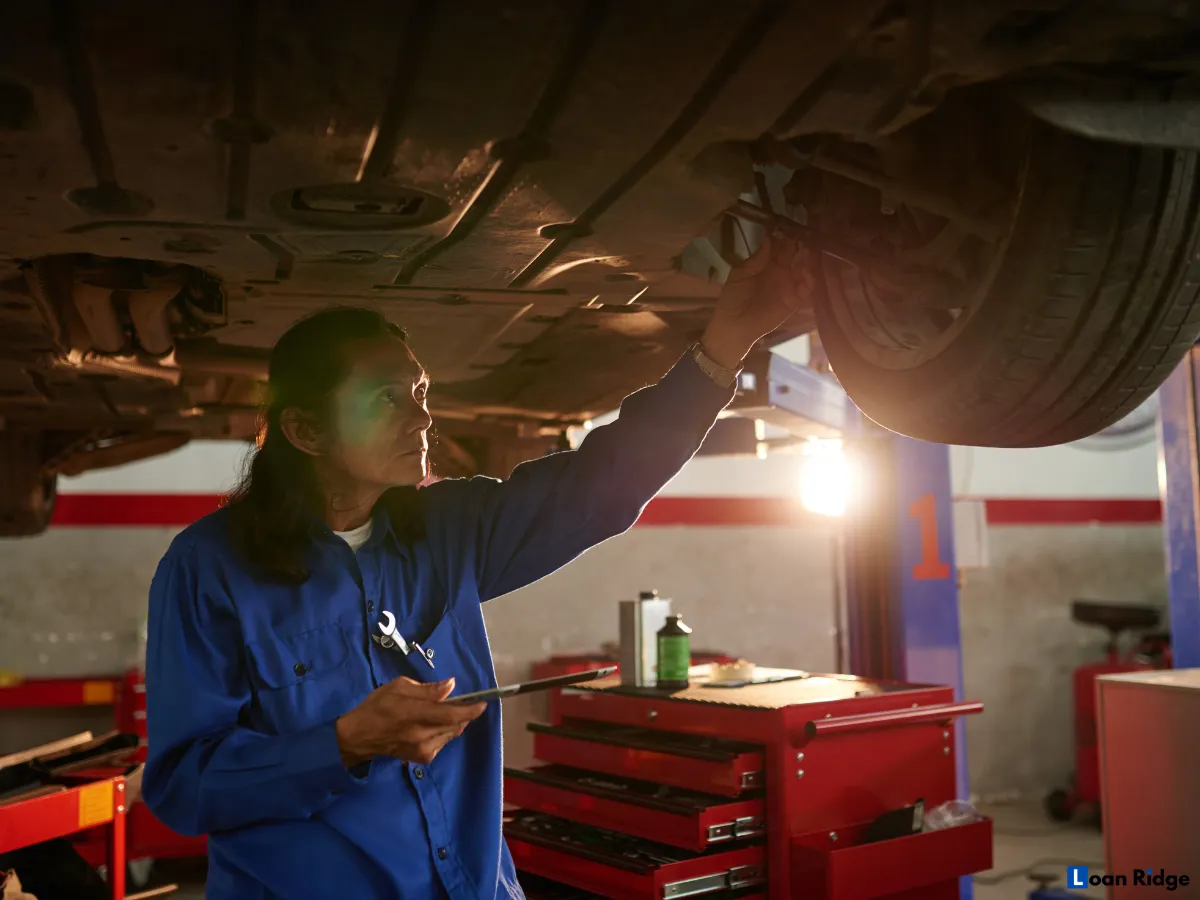Car repairs always seem to happen at the worst possible moment. A blown radiator, flat tire, or busted transmission can be both stressful and costly. If you lack sufficient savings to pay for the repairs, you might find yourself asking what you can do. One possibility is an installment loan.
Installment loans are a form of personal loan where you borrow a lump sum of money and repay it over a period of time, usually through monthly payments. Is it, though, the ideal option for funding auto repairs? Let’s take a closer look.
Before deciding whether installment loans can be a suitable option for financing automobile repairs, one must understand what installment loans are and how they work. An installment loan is a type of loan in which money is borrowed in a fixed amount and repaid over a specified time frame through regular payments, or installments. The installments typically include both the borrowed amount and the loan interest.
Installment loans are secured or unsecured. Secured loans require collateral, such as a car or home, to be put against the loan. Unsecured loans do not require collateral but usually have higher interest rates than secured loans in an attempt to compensate the lender for the increased risk.
Installment loans may be secured through various lenders, including banks, credit unions, and online lenders. Installment loans can be employed to cover just about any cost, including medical bills, home improvement, and debt consolidation. In the case of vehicle repairs, installment loans could offer a way to cover the costs of unexpected repair bills.
When you take out an installment loan, lenders will typically make their decision based on your credit rating, income level, and debt-to-income ratio. Your credit score reflects your creditworthiness and the likelihood of you paying off the loan installment within time. A higher credit score can improve your chances of approval and potentially lead to more favorable loan terms, such as lower interest rates and fees.
By and large, installment loans provide access to borrowing and repaying later in installments. They are flexible in size of loans and repayment periods and may be just the ticket for those with unplanned expenses, such as an automobile repair bill.
Vehicle repairs can be costly, and it is important to understand the typical expenses associated with them. Depending on the type of repair needed, expenses can vary greatly. However, there are some common costs that drivers should be aware of when considering financing for repairs.
Parts are one of the biggest expenses in automobile repairs. Parts are extremely expensive based on the make and model of the vehicle. For example, a transmission can cost thousands of dollars, and a simple engine component like a fuel injector can cost hundreds of dollars.
Labor is another significant cost consideration in car repairs. Repairs that require a lot of labor, such as replacing a timing chain, can be very costly. Labor charges vary by region and repair job complexity but generally run between $50 and $150 per hour.
There will be other expenses when repairing, particularly if the car is older or has more problems. For example, if during the repair of the brake, the garage finds a fault in the suspension, that is another expense.

Overall, vehicle repairs can quickly add up to a significant expense. When considering financing options, it is important to take into account the total expected cost of the repairs, including parts, labor, and any additional expenses that may arise.
When faced with unexpected vehicle repair expenses, installment loans can be a helpful option. Here are some advantages of utilizing installment loans to cover these costs:
| Advantage | Description |
|---|---|
| Quick access to funds | Installment loans can provide funds quickly, allowing you to address your vehicle repairs promptly without waiting for personal savings or applying for a traditional loan. |
| Flexible repayment terms | With installment loans, you can choose a repayment plan that suits your financial situation. Many lenders offer a variety of repayment terms, including monthly, bi-weekly, or weekly payments. |
| Potential to finance larger expenses | Installment loans can offer a higher borrowing limit than other financing options, which can help cover the cost of more extensive vehicle repairs. |
With the ability to provide immediate access to cash, easy-to-make installment payments, and the ability to finance big-ticket purchases, installment loans are a good option when confronted with unexpected car repair costs.
Note: Before considering installment loans, it is important to thoroughly evaluate the expense of vehicle repairs and determine if the advantages of installment loans outweigh the costs and potential risks.
While installment loans can be a viable option for covering vehicle repairs, it is important to keep in mind several key considerations.
Overall, installment loans can be a valuable resource for covering vehicle repairs, but it is important to carefully consider the loan terms, interest rates, credit requirements, and alternatives before making a decision.

While installment loans could be a suitable option for covering car repairs, they are not the option for everyone. If you don’t want to borrow money or do not have the approval for an installment loan, there are alternatives to consider.
Personal savings: Utilize the money in your savings account to finance the car repair expense. It is often the most cost-effective way since you won’t be paying a fee or interest on a loan. But leave enough in there for emergency expenses.
Credit cards: Depending on your credit card limits and interest rates, using a credit card to pay for car repairs may be an option. Keep in mind that credit card interest rates can be even higher than installment loan interest rates, and carrying a balance can damage your credit score.
Auto repair loans: Some lenders actually offer auto repair loans, typically with lower interest rates than regular personal loans. However, similar to installment loans, such loans involve a credit check and potentially other eligibility requirements.
Financial assistance from family and friends: If you have supportive family members and friends who can and are willing to help, consider asking for financial assistance to cover the car repair expenses.
Before making a decision, compare the pros and cons of each option and how it fits into your budget. Consider interest rates, repayment periods, eligibility, and impacts on credit scores.
Once you have decided to borrow an installment loan to cover your car repairs, there are several things you can do to obtain one.
To begin with, compare and research lenders to find one that has reasonable interest rates, good payment terms, and quality customer service. You can do this by reading online reviews or asking relatives and friends for recommendations.
Then, collect the required documents like proof of income, identification, and information on your vehicle and repair costs. Some creditors might also want a credit check, so get ready for that too.
Prior to applying, you should check if you are eligible for the lender, whose terms may vary based on things such as credit score, income, and employment history. If you are uncertain whether you qualify, it is advisable to call the lender directly to inquire.
When applying, ensure that you provide accurate and full information to avoid delays or complications. You can also apply with a co-signer or collateral to have a better opportunity of being approved and, perhaps, pay a lower interest rate.
After you have submitted your application, the lender will proceed to review it and make a decision on whether to approve or decline your loan application. Once approved, your money will be credited to your nominated bank account, and you can go ahead and use the funds to meet your car repair expenses.

Remember that you must only borrow what you need and have a plan for paying back the loan within the given time. Not paying back an installment loan can have disastrous effects on your credit history and financial well-being.
After considering the suitability of installment loans for covering vehicle repairs, it is essential to weigh the advantages and considerations before making a decision.
If instant access to money is required, and you want flexibility in payments, installment loans offer a good chance to finance car repairs. With the ability to cover more costly financial burdens, installment loans can cover the hassle of unexpected car repair expenses.
However, it is important to pay attention to the interest rates, repayment terms, and credit requirements before applying for an installment loan. Failure to pay attention to such terms can result in unfavorable loan terms or damage your credit score.
Further, other alternatives such as personal savings, credit cards, car repair loans or requesting assistance from friends and relatives may be more suitable, based on your circumstances.
Should you find installment loans to be the best method in financing car repairs, make sure you have identified reputable lenders, have all the necessary documents, and meet the eligibility criteria before applying.
Overall, installment loans are a convenient system when paying for car repairs, but it is crucial to assess your situation carefully and consider all the available options before making a decision.